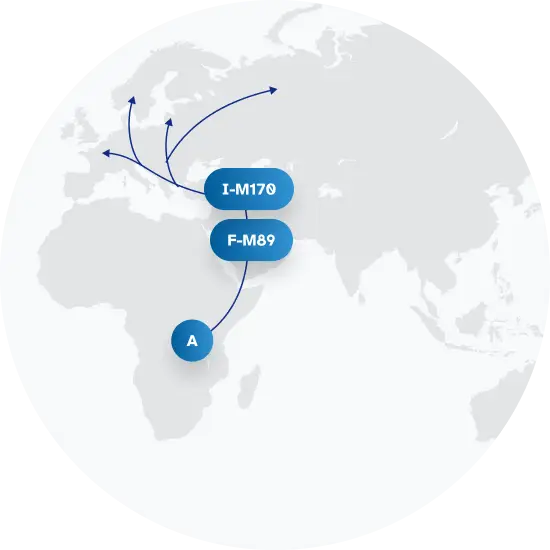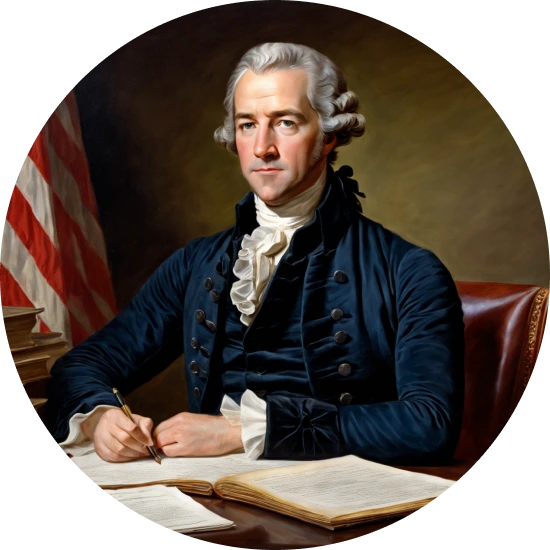Explore the Family Name Norman
How common is the last name Norman in the United States?
The surname Norman, according to the Decennial U.S. Census, showed some changes in its popularity between 2000 and 2010. In 2000, it held the rank of 461 but dropped to 495 by 2010, a change of -7.38%. Despite this decrease in rank, the number of people sporting the Norman surname actually increased from 65,269 to 67,704, a growth of 3.73%. The proportion of people with this surname per 100,000 also saw a decline from 24.2 to 22.95, a reduction of -5.17%.
| 2000 | 2010 | Change | |
|---|---|---|---|
| Rank | #461 | #495 | -7.38% |
| Count | 65,269 | 67,704 | 3.73% |
| Proportion per 100k | 24.2 | 22.95 | -5.17% |
Race and Ethnicity of people with the last name Norman
In terms of ethnicity, the Decennial U.S. Census data reveals several shifts for those bearing the surname Norman between 2000 and 2010. The percentage identifying as Asian/Pacific Islander rose by 50%, from 0.42% to 0.63%. Those identifying with two or more races also saw an increase from 1.71% to 2.25%, a 31.58% increase. Meanwhile, the proportion identifying as White decreased by 3.65%, from 71.58% to 68.97%. The Hispanic population saw a significant rise, from 1.54% to 2.44%, a hike of 58.44%. There was also a minor increase in those identifying as Black, from 24.13% to 25.07%, a change of 3.9%. Lastly, the American Indian and Alaskan Native category saw a slight increment from 0.61% to 0.63%, an increase of 3.28%.
| 2000 | 2010 | Change | |
|---|---|---|---|
| White | 71.58% | 68.97% | -3.65% |
| Black | 24.13% | 25.07% | 3.9% |
| Hispanic | 1.54% | 2.44% | 58.44% |
| Two or More Races | 1.71% | 2.25% | 31.58% |
| Asian/Pacific Islander | 0.42% | 0.63% | 50% |
| American Indian and Alaskan Native | 0.61% | 0.63% | 3.28% |
Norman ancestry composition
23andMe computes an ancestry breakdown for each customer. People may have ancestry from just one population or they may have ancestry from several populations. The most commonly-observed ancestry found in people with the surname Norman is British & Irish, which comprises 50.2% of all ancestry found in people with the surname. The next two most common ancestries are French & German (21.4%) and Scandinavian (5.3%). Additional ancestries include Nigerian, Eastern European, Italian, Ashkenazi Jewish, and Ghanaian, Liberian & Sierra Leonean.
Ready to learn more about your ancestry? Get the most comprehensive ancestry breakdown on the market by taking our DNA test. Shop 23andMe
| ANCESTRY BREAKDOWN | COMPOSITION |
|---|---|
| British & Irish | 50.2% |
| French & German | 21.4% |
| Scandinavian | 5.3% |
| Other | 23.1% |

Possible origins of the surname Norman
Your DNA provides clues about where your recent ancestors may have lived. Having many distant relatives in the same location suggests that you may all share common ancestry there. Locations with many distant relatives can also be places where people have migrated recently, such as large cities. If a large number of individuals who share your surname have distant relatives in a specific area, it could indicate a connection between your surname and that location, stemming from either recent ancestral ties or migration.
Based on 23andMe data, people with last name Norman have recent ancestry locations all within the United Kingdom of Great Britain and Northern Ireland.
| RECENT ANCESTRY Location | Percentage |
|---|---|
| Greater London, United Kingdom | 83.40% |
| Merseyside, United Kingdom | 83.10% |
| Greater Manchester, United Kingdom | 83.10% |
| Glasgow City, United Kingdom | 83.00% |
| West Midlands, United Kingdom | 82.50% |
What Norman haplogroups can tell you
Haplogroups are genetic population groups that share a common ancestor on either your paternal or maternal line. These paternal and maternal haplogroups shed light on your genetic ancestry and help tell the story of your family.
The top paternal haplogroup of people with the surname Norman is I-Z58, which is predominantly found among people with European ancestry. Haplogroup I-Z58 is descended from haplogroup I-M170. Other common haplogroups include R-CTS241 and I-M253, which are predominantly found among people with European and European ancestry. Other surnames with similar common haplogroups are: Lowe, White, Reed, Stevenson, Taylor, Green, Fields, Fox, Baker, Blake.
The most common maternal haplogroups of people with Norman surname are: H1, T2b, H. These most commonly trace back to individuals of European ancestry.
 Paternal Haplogroup Origins I-M170
Paternal Haplogroup Origins I-M170
Your paternal lineage may be linked to Alexander Hamilton
Early in the morning on July 11, 1804, Aaron Burr (then Vice President of the United States) and Alexander Hamilton (founder of the U.S. Treasury) dueled on the New Jersey side of the Hudson River. This marked the culmination of a bitter personal and political rivalry between the two men. Alexander Hamilton died as a result of the duel, but his intellectual legacy survives in the founding documents of the nation he helped build. A piece of his genetic legacy survives as well: in the 21st century, genealogists documented the paternal haplogroups of dozens of Hamilton's living descendants and concluded that the Founding Father's paternal haplogroup was a branch of I-DF29.
Your maternal lineage may be linked to Marie Antoinette
Because it is so dominant in the general European population, haplogroup H also appears quite frequently in the continent's royal houses. Marie Antoinette, an Austrian Hapsburg who married into the French royal family, inherited the haplogroup from her maternal ancestors. So did Prince Philip, Duke of Edinburgh, whose recorded genealogy traces his female line to Bavaria. Scientists also discovered that famed 16th century astronomer Nicolaus Copernicus traced his maternal lineages to haplogroup H.

What do people with the surname Norman have in common?
Spoiler alert: it's complicated. People with the same last name are usually no more genetically similar than a randomly sampled group of people from the same population. That said, people with the same surname are more likely to have similar ancestries than randomly sampled individuals. The reason is the tendency of people with similar cultural or geographical backgrounds to preferentially mate with one another. That's why people who share a surname may be more likely to share traits and tendencies in common than people within the general population. Check out the percentages below to see the prevalences of tastes, habits, and traits of people with your surname compared with prevalences among 23andMe users.
Preferences
Traits
Habits
Wellness
Are health conditions linked to the last name Norman?
The short answer is that, if there is an association between surname and health, it's usually more about your ancestry than your name. Individuals with a given surname are no more genetically similar than the general population but often have similar ancestries. The populations of people associated with those shared ancestries often have sets of genetic variations, also known as alleles, in common. Some of those alleles are associated with a greater likelihood of developing certain diseases.
Disease variant frequency by ancestry
Disease allele frequencies in populations associated with the surname Norman are shown below. Important Note: not everyone with a disease allele will develop these health condition



























